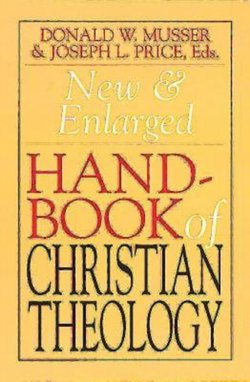Читать книгу New & Enlarged Handbook of Christian Theology - Donald W. Musser - Страница 46
На сайте Литреса книга снята с продажи.
ОглавлениеCOSMOLOGY
As a physical science, cosmology conducts research in three main areas: (1) Relativity theory and astrophysics seek to explain the structures of the universe, (2) particle physics explores the constituents making up the universe, and (3) inflationary physics delves into the origin of the universe, with recent interest on “The Big Bang” theory. The overall goal of these areas is to present a unified and comprehensive picture of the physical universe. This objective means that scientific cosmologists interpret the origin, evolution, distribution, and structure of all the matter comprising the universe. In these terms, cosmology studies the nature and constitution of space-time.
Pre-scientific cosmologies in the West can be traced back to ancient Babylon and Egypt. Coupled with Greek philosophies these views evolved into medieval Catholic cosmology. This “Christian cosmology” united Hellenic speculation, especially the views of Aristotle, with Hebrew perceptions from the Bible. A full-blown Aristotlean theological cosmology developed into what is known as “natural theology.” Looking at the formation and structures of the universe to find “imprints” of God, natural theology produces the idea that “the Book of Nature” offered intrinsic evidence for God independent from but supported by the Bible. On this basis Christianity developed the classical arguments for the existence of God (the so-called cosmological, teleological, ontological, and deontological arguments). One could know that God exists by inquiring into nature; one found out what God requires of us in the Bible. Scientific cosmology split completely from this paradigm, building on empirical research and mathematical logic rather than philosophical and theological metaphysics.
Contemporary theology approaches to the physical universe now tend to prefer to think in terms of a “theology of nature” rather than natural theology. Considerable interest exists in reassessing traditional views about cosmology. The Center for the Study of Science and Religion and the Progress in Theology Project, sponsored by the John Templeton Foundation, have put a spotlight on issues interrelating theological and scientific cosmologies. Traditional motives to validate traditional Christian beliefs in God or to offer apologies for a Christian theism still exist among some theologians. Most theologians today, however, find that these motives thwart the proper methods and goals of both scientific and theological cosmologies. Christian cosmology assumes God’s existence rather than trying to prove it.
Theologically, cosmology is to space what history is to time. Serious attention is now being directed to the purposeful relationship between spatiality and cosmology as once was given to the relationship between time and history. Theologians are looking for implications of the findings of science for interpreting theological perceptions about the cosmos and the meaning of human and nonhuman existence. Cosmology becomes theological cosmology when it considers the meaning of God as the Ultimate Reality at the heart of the cosmos. Physics finds facts or probabilities about the cosmos. Theology, depending on physical findings to open up new thinking about the theological dimensions of the cosmos, seeks to discover sacred meaning and purpose interwoven within that same cosmos.
A Christian cosmology’s main struggle is to describe adequately the relationship between God and the universe. Generally, it agrees about three concepts of this relationship between God and the cosmos.
First of all, for Christian cosmology God is the foundation without which there is nothing. Although philosophy argues that ex nihil nihil fit (“from nothing, nothing is made”), theology maintains that there never was “nothing.” On the contrary, God and God alone is eternal, uncreated. Existence is therefore completely dependent upon God. This cosmological assumption provides the root meaning of Christian claims that God is the Creator and Sustainer of the world, and the basis of the Christian historic claim of creatio ex nihilo (“creation from nothing”).
Second, Christian cosmology affirms that the universe has a beginning and ending. It is not eternal. Thus, existence and nonexistence of all things are in the “hand of God.” Not only is God found in nature, but the cosmos itself is ultimately in God. From this root meaning Christianity speaks about creation and eschatology, the final cosmic return to God. The cosmos begins and ends in God.
Finally, for Christian cosmology the universe and all that is in it is free. It is not manipulated, nor do events happen by necessity. Choices are made; evolutionary chance happens; malformations occur. Thus, cosmology drives discussions toward issues of human nature, free will, and theodicy. Many theological questions are evoked, such as: From whence comes evil? What part does God play in the chaos and order, good and evil of this world? How is the universe “free” if Christians affirm that it ends in God?
D. DIXON SUTHERLAND
Bibliography
Ian G. Barbour, Religion in the Age of Science.
Rolston Holmes III, Genes, Genesis, and God.
Arthur Peacocke, Creation and the World of Science.
Ted Peters, ed., Cosmos as Creation.
Ilya Prigogine and Isabelle Stengers, Order Out of Chaos.
Stephen Toulmin, The Return to Cosmology: Postmodern Science and the Theology of Nature.
Cross-Reference: Creation, Evil, Freedom, Natural Theology, Nature, Providence, Science and Christianity, Science and Theology, Space, Theism, Time.
